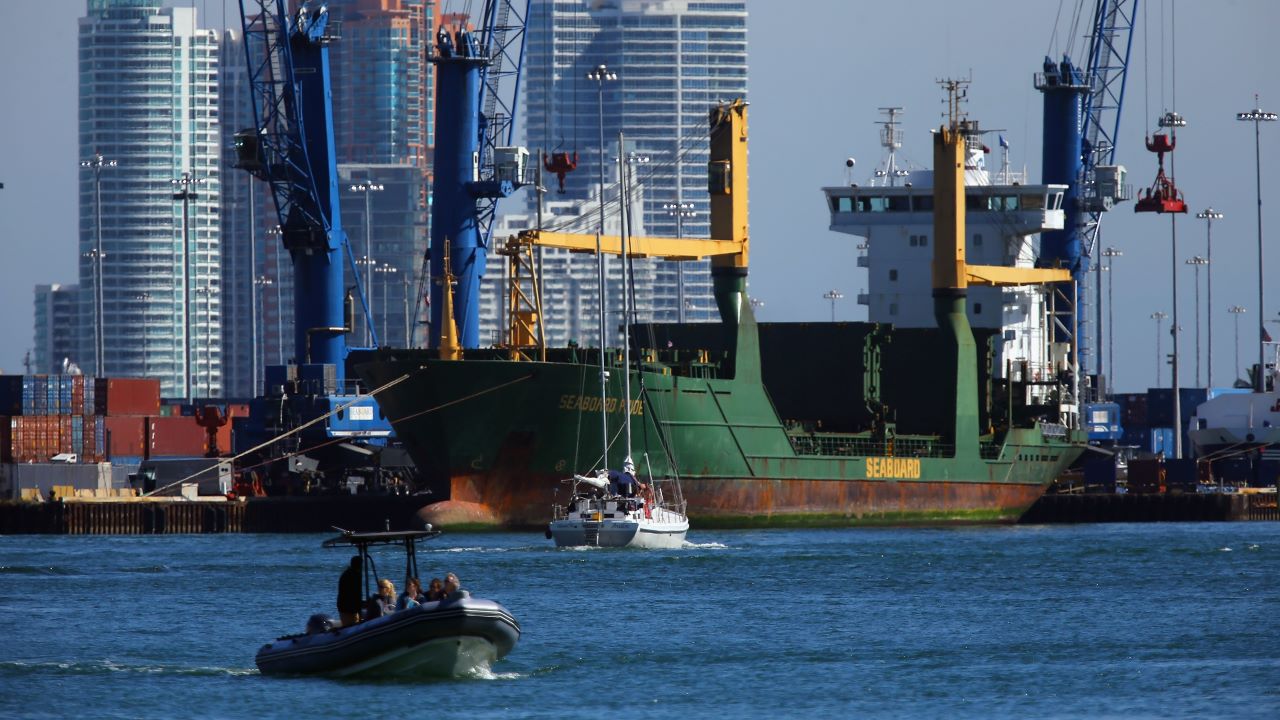The threat of port strikes on the East Coast and Gulf of Mexico is sending shockwaves through the supply chain, and raising concerns that there will be an uptick in inflation.
“Goods trans-shipped across the country are not only going to be late but they will cost more, e.g., apparel meant for early winter and the holidays,” George Kochanowski, CEO of logistics company Staxxon, told FOX Business.
Kochanowski continued, “If the goods were containerized, where will all those empties go and who will pay to have them stored, accounted for, and repositioned? All these costs will be factored in the price of the goods sold.”
The International Longshoremen’s Association (ILA) is negotiating on behalf of 45,000 dockworkers at three dozen U.S. ports from Maine to Texas that collectively handle about half of the country’s seaborne imports. It warned its members are prepared to stop work if they don’t have a new contract by the Oct. 1 deadline.
PORT STRIKES COULD HAVE ‘DEVASTATING’ IMPACT TO ECONOMY, RETAIL TRADE GROUP SAYS
The issue is that this comes during the most critical time of year for retailers, which told FOX Business that if a new labor deal isn’t negotiated by the end of the month, it could have a “devastating impact” on the overall U.S. economy.
Jim Gillis, Pacific region president of IMC, a nationwide trucking company that operates at ports, said he’s seeing a “litany of issues related to cargo surges – mainly port congestion and pool chassis shortages.”
It was something they hadn’t seen in the previous months.
CHRISTMAS IN SEPTEMBER: HERE’S WHY RETAILERS ARE ALREADY PULLING OUT THE HOLIDAY-THEMED GOODS
“As a trucker, we are seeing significant wait times for our drivers and in some cases, even being turned away due to the congestion – this is directly correlated to the increased volume shifted to the West Coast,” Gillis continued. He noted there has been an 18% increase in freight on the West Coast.
The Ports of Los Angeles and Long Beach have seen a spike in cargo related to the potential strikes. However, Gillis noted that shippers made the decision to shift cargo to the West Coast between six and 10 weeks ago at minimum, prior to cargo arriving on the West Coast.
GET FOX BUSINESS ON THE GO BY CLICKING HERE
“Those shippers who are now looking at shifting cargo are a little behind the eight ball and not necessarily finding quick, economic solutions to solve their issues,” he added.
Still, this surge isn’t “nearly the levels we experienced during the later stages of the pandemic and we’re not yet seeing anything that approaches ’emergency’ status,” Gillis said.
Goya Foods Senior Vice President Joe Perez said the company has been actively preparing for a potential strike over the past several months by increasing safety stock, shipping Christmas items earlier than usual and adding additional ocean carriers.
Over the past two weeks, Perez said they have been rapidly moving cargo off the piers, increasing receiving hours and adding more trucking services.
Meanwhile, Norfolk Southern Railway, which operates nearly 20,000 route miles throughout 22 states, said it’s keeping the supply chain moving.
“We are working with customers to leverage our network, as well as our partnerships with ocean carriers, short line railroads, and western Class I railroads, to minimize disruptions and ensure that essential goods continue to flow as efficiently as possible,” Norfolk Southern told FOX Business.
